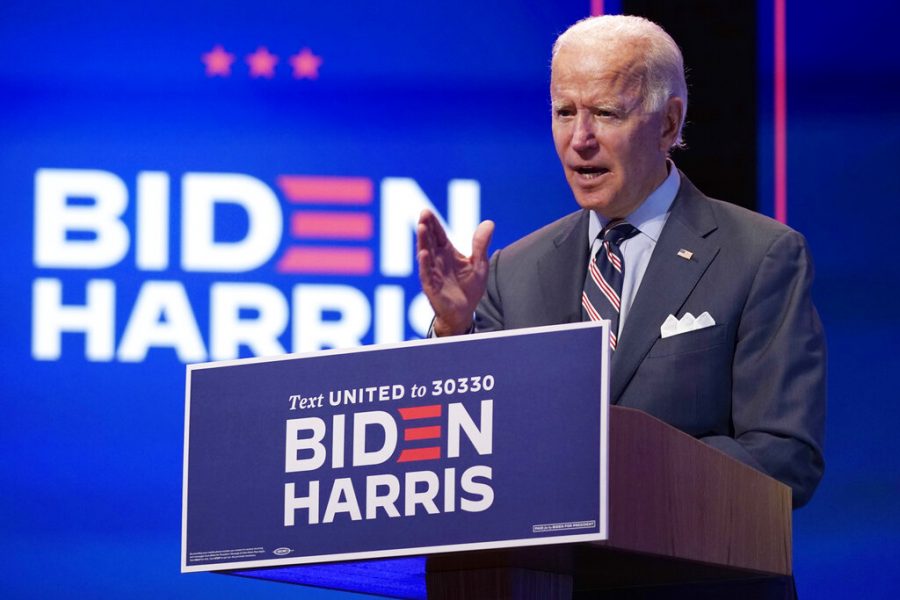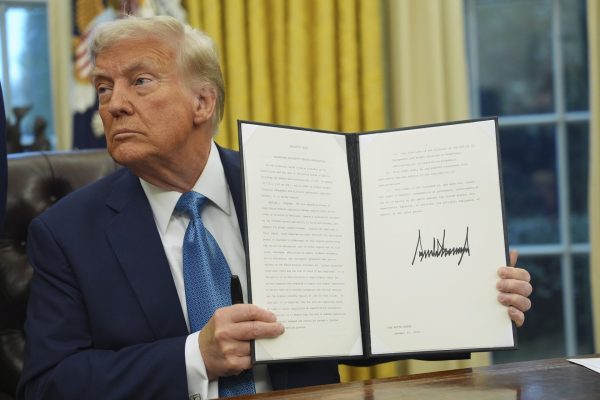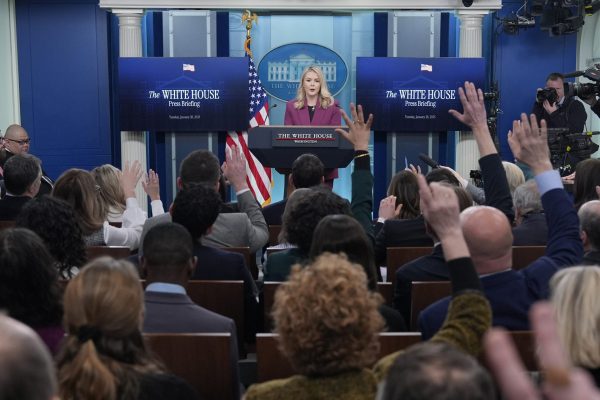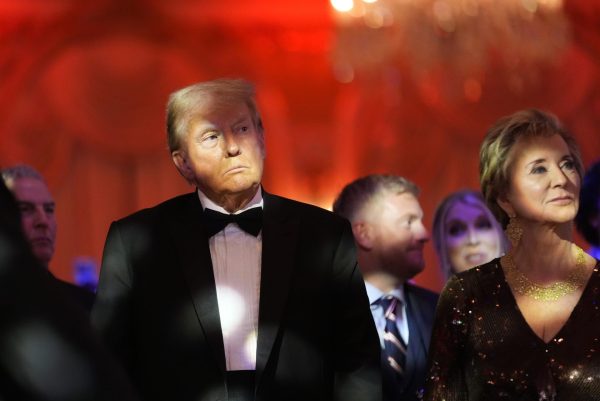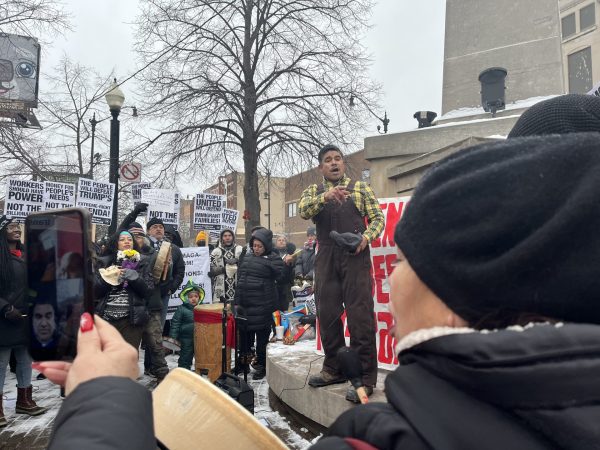What to know before watching the first presidential debate
Democratic presidential candidate former Vice President Joe Biden speaks Wednesday, Sept. 16, 2020, in Wilmington, Del. Biden generated headlines in February with a debate-stage promise to name the first Black female Supreme Court justice if he wins the White House. Since then, the Democratic presidential nominee has said little about the court. He’s resisted calls from President Donald Trump, Republicans and even some Democrats to release a list of potential nominees (AP Photo/Patrick Semansky)
The first presidential debate airs on Tuesday, Sept. 29, at 8 p.m. Central time. The event will include six 15-minute segments on topics selected by Chris Wallace, the moderator for the event.
The topics were announced in advance in order to “encourage the deep discussion of the leading issues facing the country,” the Commission on Presidential Debates said in a statement.
The debate topics, subject to possible changes because of news developments, include Trump and Biden records, the Supreme Court, Covid-19, the economy, race and violence in cities, and the integrity of the election.
Trump and Biden records
In Old Forge, Pennsylvania. on Aug. 20, President Trump called Former Vice President Joe Biden a “puppet of the radical left movement.” The president has repeatedly attempted to paint the former vice president as a radical leftist, though Biden’s record reflects an ideology that more strongly resembles that of a moderate.
Biden said he wants to be a fact-checker of sorts on stage, but Jen Psaki, a former Obama aide who is close to Biden’s team, does not think this is an effective strategy.
“This is an opportunity to speak directly to the American people,” Psaki said. “His objective should be to speak directly to them, but not be pulled in by Trump. That is hard.”
The Supreme Court
After the death of Justice Ruth Bader Ginsburg, President Trump immediately announced he will work to push his nominee for the Supreme Court through the Senate before Election Day. President Trump announced Saturday that he is nominating Judge Amy Coney Barrett to replace Justice Ruth Bader Ginsburg on the Supreme Court.
This announcement has received staunch criticism from Democrats, as it was Ginsburg’s dying wish to not be replaced until a new president was elected.
“My most fervent wish is that I will not be replaced until a new president is installed,” Ginsburg said to her granddaughter Clara Spera.
Republican senators have expressed their support for Trump’s Supreme Court nomination in public statements over the weekend. Those in support include Rick Scott, Richard Shelby and Senate Majority Leader Mitch McConnell.
Covid-19
Covid-19 has ravaged the country for the majority of 2020, with continuing rising cases and deaths because of the disease. On Sept. 19, the U.S. death toll passed 200,000, according to data from John Hopkins University.
President Trump has claimed that a possible vaccine could be available before the election, even though the Center for Disease Control and Prevention reports that a vaccine would not be available until next summer or early fall. Trump stated that he believes that report to be a mistake.
The economy
President Trump has said that he has built the greatest economy in the world and that he will continue to do so if he is re-elected.
“It’s said now that our economy is the strongest it’s ever been in the history of our country, and you just have to take a look at the numbers,” Trump said in an interview on “Fox and Friends” on Aug. 23.
As the economy has taken a hit because of Covid-19, Biden denounced Trump after new data showed that the U.S. suffered its worst quarterly downturn in history.
“The depth of economic devastation our nation is experiencing is not an act of God, it’s a failure of presidential leadership,” Biden said in a statement released by his campaign in July.
Race and violence in cities
In response to the killings of George Floyd and Breonna Taylor, the summer has erupted with cries for racial justice and police reform. As a result, President Trump has repeatedly denounced “Democrat-run cities” for the facilitation of these protests.
In an interview with Chris Wallace on July 19, Trump insisted that Joe Biden wants to defund the police in reference to policy recommendations submitted by a joint task force with supporters of Sen. Bernie Sanders.
In an interview with ABC’s Robin Roberts on Aug. 21, Biden responded to Trump’s comments that he wants to defund the police.
“I don’t want to defund police departments,” Biden said. “I think they need more help, they need more assistance, but that, look, there are unethical senators, there are unethical presidents, there are unethical doctors, unethical lawyers, unethical prosecutors, there are unethical cops. They should be rooted out.”
The integrity of the election
On Wednesday, President Trump refused to commit to a peaceful transition of power if he loses in this election.
“Well, we’re going to have to see what happens. You know that I’ve been complaining very strongly about the ballots and the ballots are a disaster,” Trump said when asked at a White House press briefing if he would ensure a peaceful transition of power.
Despite Trump’s comments, data from The Washington Post shows that states who have embraced universal mail voting have documented tiny rates of possible ballot fraud. With help from the nonprofit Electronic Registration Information Center, the Washington Post found that0.0025 percent of votes cast by mail in the 2016 and 2018 general elections show the possibility of double voting or voting on behalf of deceased people.


